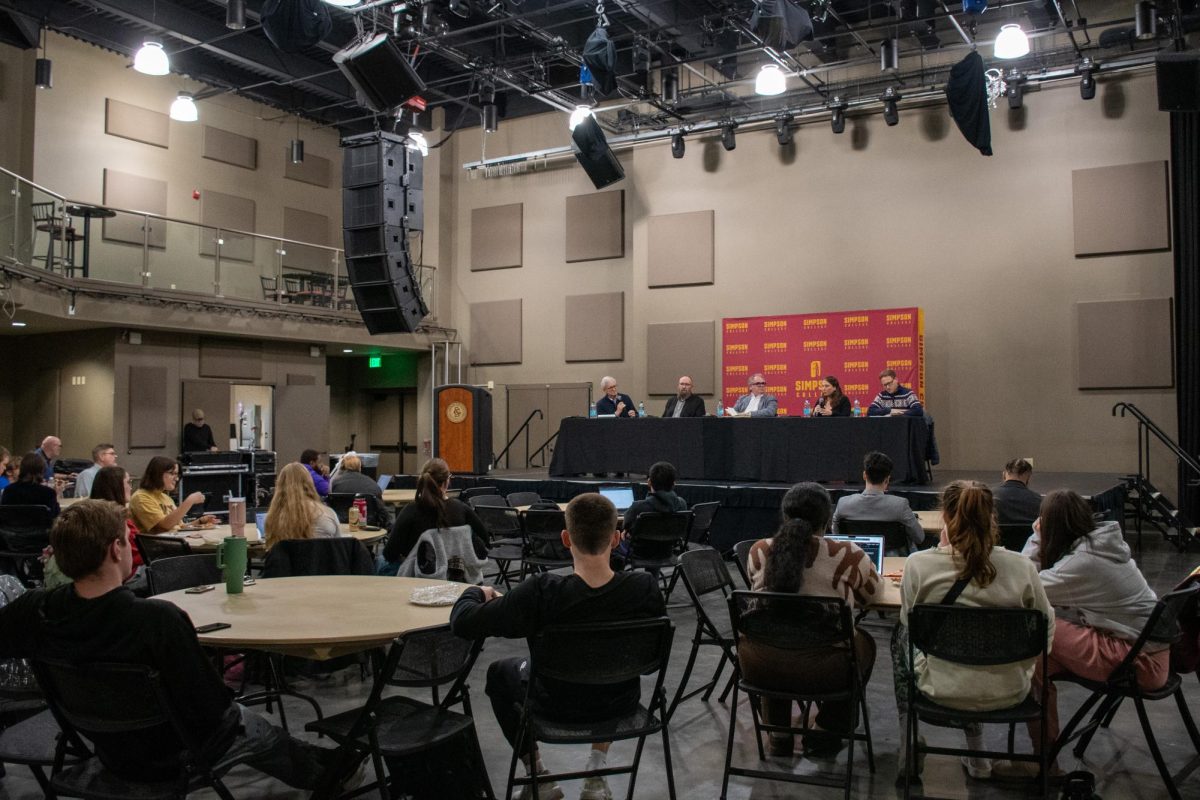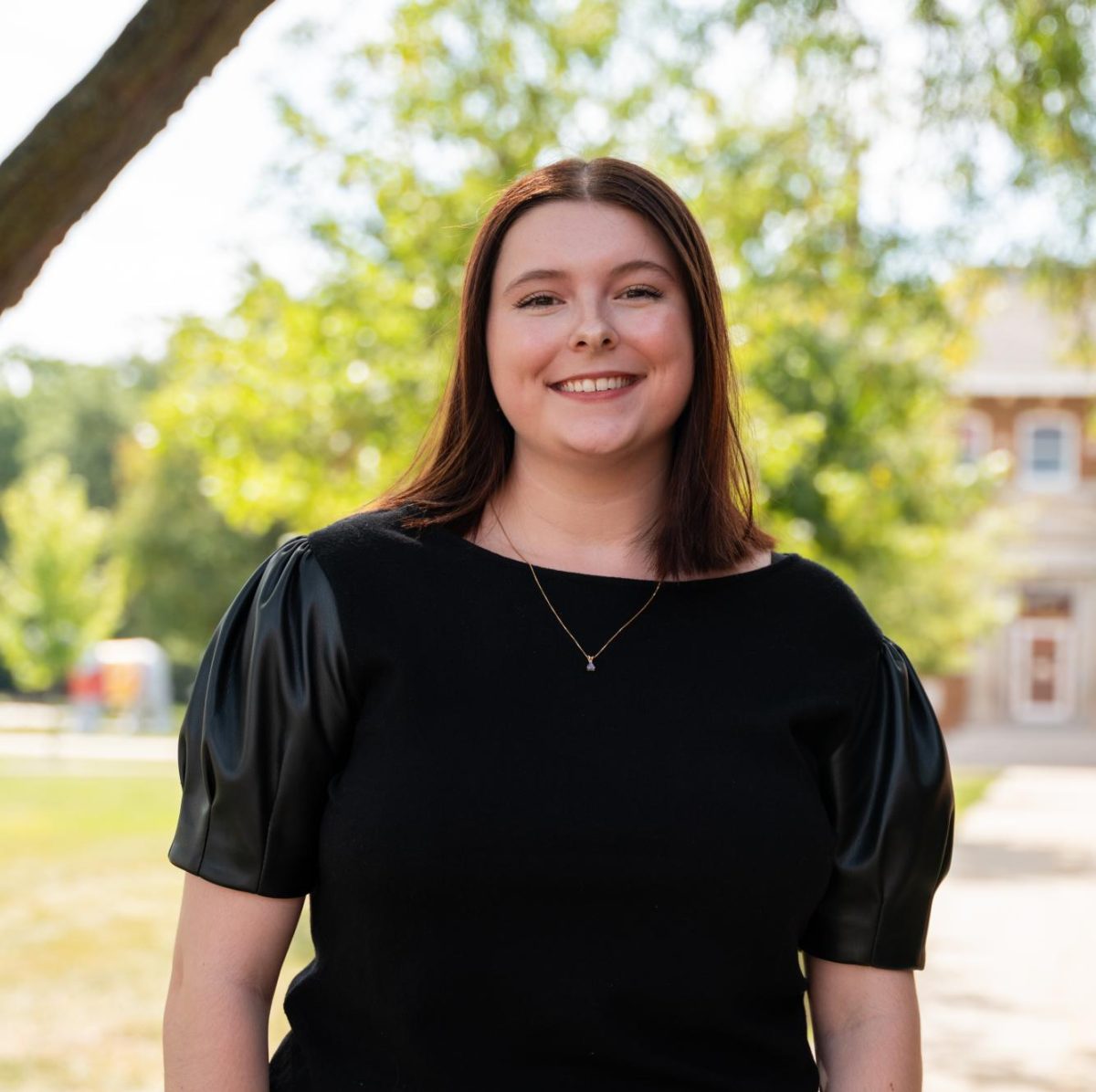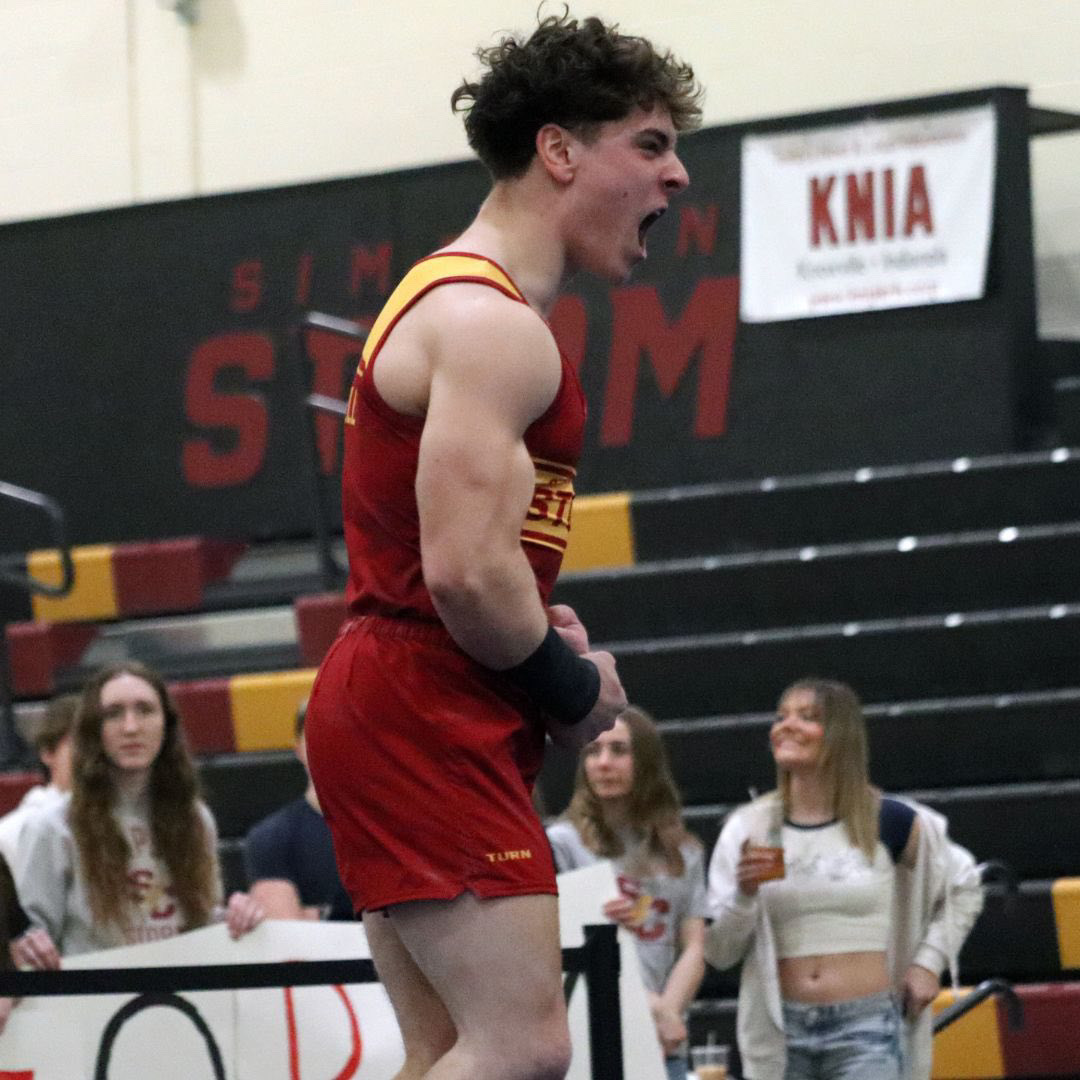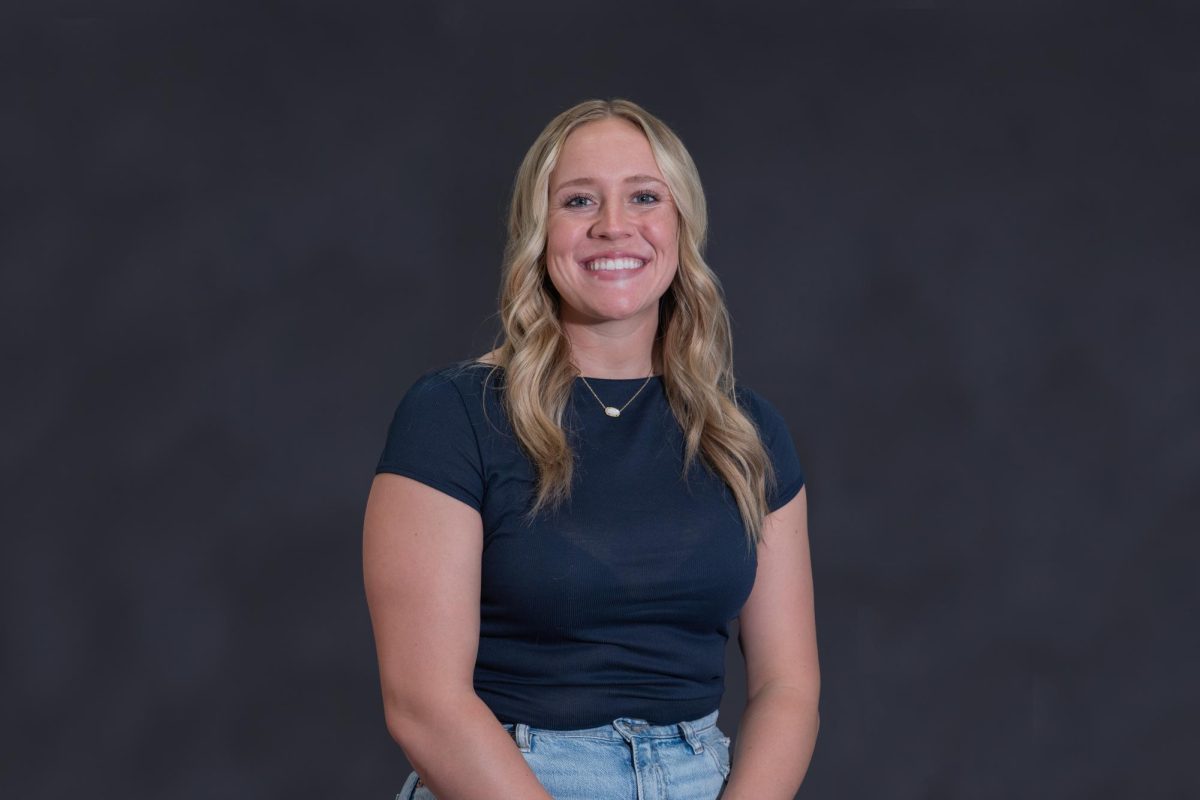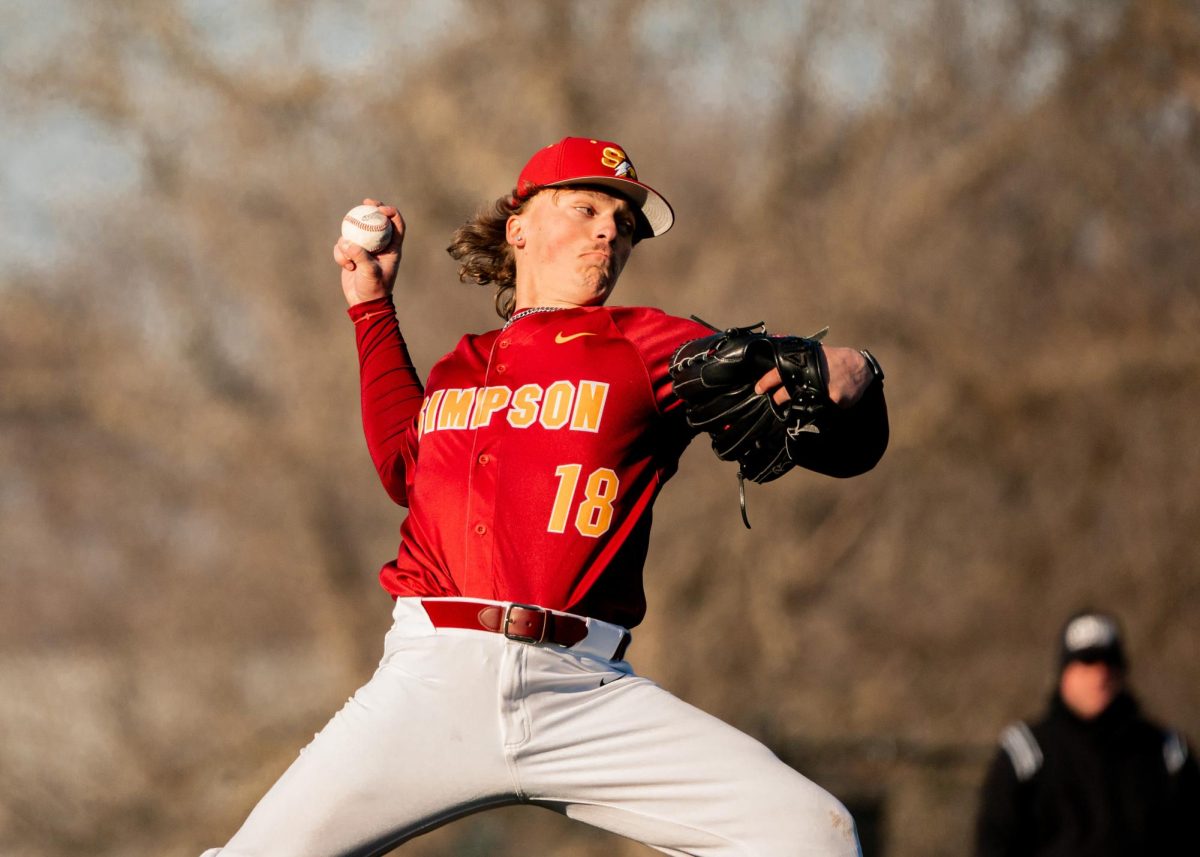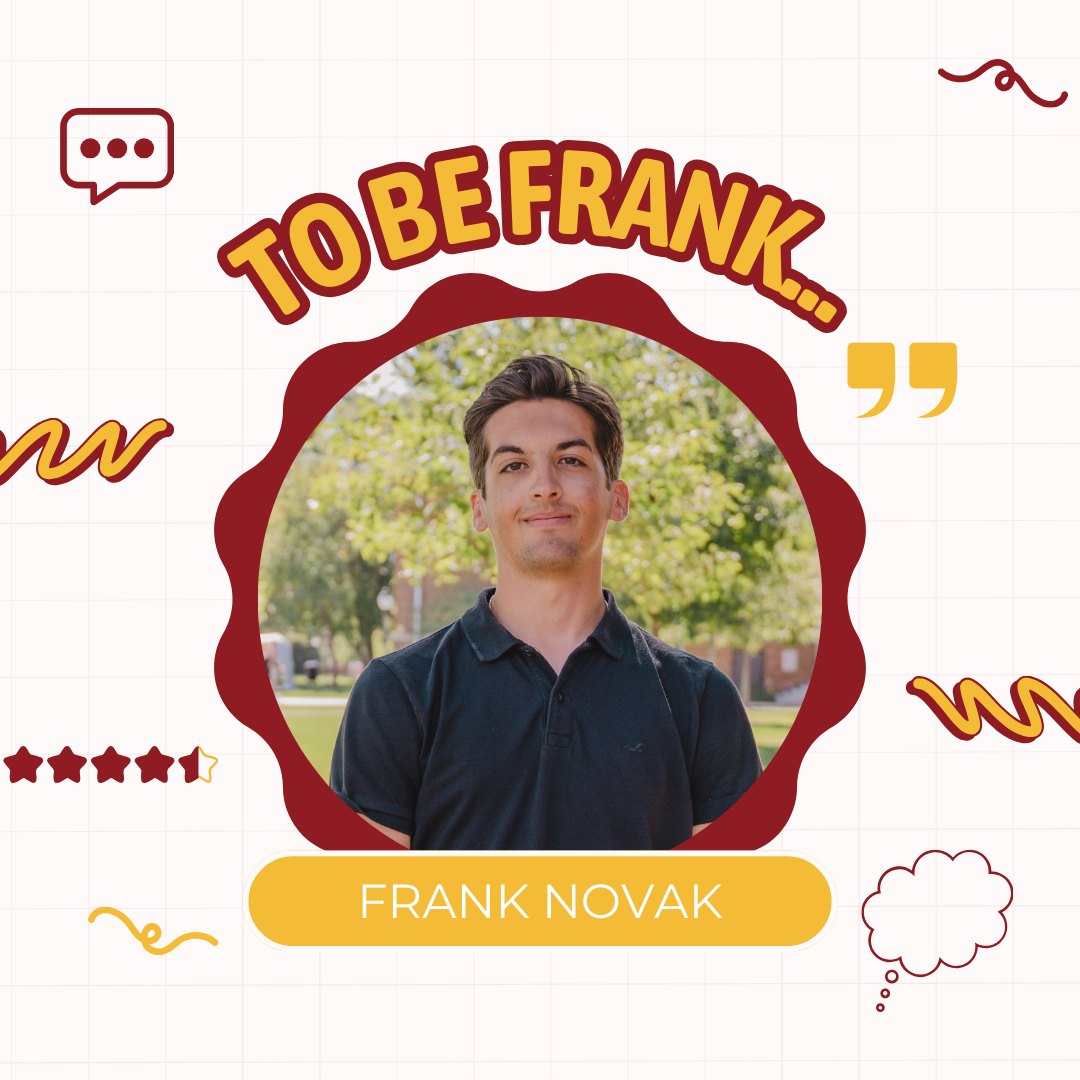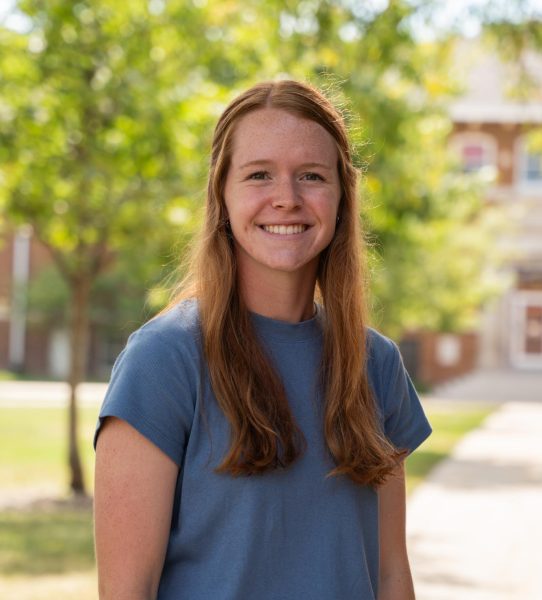On the evening of Monday, Nov. 25, the John C. Culver Public Policy Center of Simpson College hosted around twenty Simpson students and some of Iowa’s top political analysts and journalists for a panel discussion forum recapping the 2024 election.
Seth Andersen, Executive Director of the John C. Culver Public Policy Center, was the first speaker of the evening and shared the significance behind this event.
“For the very first time we are doing a live podcast taping of a program here at Simpson College,” Andersen said.
By partnering with the Iowa Down Ballot podcast and the Speaking of Simpson podcast run by Simpson Chair of Media, Communication & Design, Brian Steffen, the event was recorded for live listening and is now available on each platform to those who are interested.
Andersen kicked off the evening by introducing the co-chairs of the Culver Fellows Programming Committee, junior Ellee Mortensen and sophomore Katie Harryman.
Mortensen and Harryman then introduced the members of the panel for the evening. The moderator was Dave Busiek, a retired News Director for KCCI-TV Des Moines. The five other members of the panel included Bob Leonard, a retired radio news reporter and author, Doug Burns of The Iowa Mercury, Laura Belin of the Beeling Heartland and KHOI radio and finally Professor of Political Science at Simpson College, Kedron Bardwell.
Busiek began the discussion with breaking news, “Special Counsel Jack Smith has moved to dismiss both of the federal cases against Donald Trump.”
With that in mind, Busiek asked the panel members to share what they feel this will impact in regard to Donald Trump’s behavior moving forward, as well as “the American notion that no man is above the law.”
Doug Burns was the first to speak on the subject. “I think it will be less disruptive for the democratic party and the opponents of Trump as they seek to rebuild because they need to be focused on their own message and develop a brand that isn’t just anti-Trump.”
Panelist Belin disagreed with the decision made by Special Counsel Smith. “I think that he should have asked the court to delay the cases for the next four years and if the Trump justice department then chose to shut both cases down then so be it. But I think it was a mistake, he had developed a strong case and I think that the public should have been able to see the case that he developed.”.
The discussion then moved to the topic of election results. Professor Bardwell shared the insight he and his students observed from the results of a survey sent out to Simpson students.
“If you look back four, eight or twelve years ago at Simpson College, the student body leaned to the left, and what we saw right away on preliminary results is that actually republicanism, conservatism and vote for Trump was up between three and five percent of a lead over democrats or for Harris,” Bardwell said.
Bardwell feels that change is happening among young voters. “The assumption that we have had is that young voters are always going to be culturally and politically progressive is changing and we have to dig in and see what is happening there,” Bardwell said.
Survey results also revealed the most popular traits and policy areas student voters were concerned with when casting their ballot.
“Issues one, two and three for all of those categories including voters in general, not just republicans, was the economy, inflation and immigration,” Bardwell said.
A key point that was revisited numerous times throughout the discussion was the short amount of time Harris had to run her campaign.
“Part of the problem was Biden’s arrogance. He sat in there for so long,” Leonard said.
Harris’ limited time to draw up a campaign plan, along with her limited compensation from donors was part of the reason Leonard feels she was not successful.
“So much of what he did was so arrogant and so privileged, I don’t think he resonated with the rural people,” Leonard said.
As the discussion began to wind down, the floor was opened up to students in attendance to ask the panel questions. Four students proposed questions to the panel, asking questions about split-ticket voting, the assassination attempts on Trump, foreign affairs and Trump’s authoritarian approach.
This event allowed students the opportunity to learn more about what took place on Nov. 5 from some of Iowa’s political professionals and ask questions about what the next four years under the Trump administration could look like.



